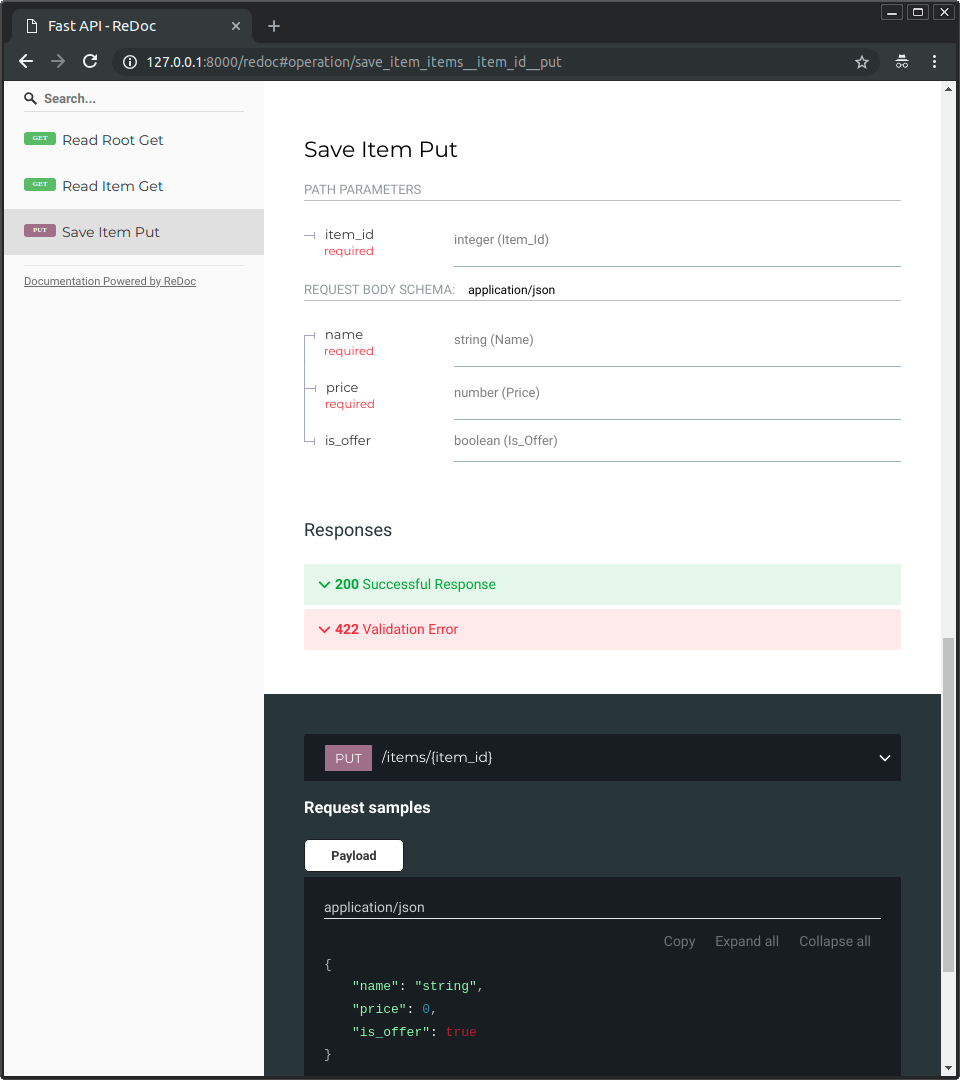- Sort Score
- Result 10 results
- Languages All
Results 1 - 10 of 15 for parameters (0.22 sec)
-
docs/bucket/notifications/README.md
The AMQP configuration is located under the sub-system `notify_amqp` top-level key. Create a configuration key-value pair here for your AMQP instance. The key is a name for your AMQP endpoint, and the value is a collection of key-value parameters described in the table below. ``` KEY: notify_amqp[:name] publish bucket notifications to AMQP endpoints ARGS: url* (url) AMQP server endpoint e.g. `amqp://myuser:mypassword@localhost:5672`
Plain Text - Registered: Sun Apr 21 19:28:08 GMT 2024 - Last Modified: Thu Jan 18 07:03:17 GMT 2024 - 84K bytes - Viewed (2) -
ci/official/wheel_test/README.md
``` #### Requirements Updater Script This script automates the process of updating TensorFlow requirements for a specific Python version. ##### Parameters `path_to_tensorflow_wheel`: The local path to the TensorFlow wheel file. Example: `/tmp/tensorflow-2.14.0-cp311-cp311-linux_x86_64.whl` `python_version`: The target Python version, replacing `.` with `_`.
Plain Text - Registered: Tue Apr 23 12:39:09 GMT 2024 - Last Modified: Thu Aug 31 18:17:57 GMT 2023 - 3.3K bytes - Viewed (0) -
helm/minio/README.md
You can specify each parameter using the `--set key=value[,key=value]` argument to `helm install`. For example, ```bash helm install --name my-release --set persistence.size=1Ti minio/minio ``` The above command deploys MinIO server with a 1Ti backing persistent volume. Alternately, you can provide a YAML file that specifies parameter values while installing the chart. For example, ```bash
Plain Text - Registered: Sun Apr 21 19:28:08 GMT 2024 - Last Modified: Wed Jan 24 07:27:57 GMT 2024 - 10.9K bytes - Viewed (0) -
docs/security/README.md
- [KEK](#kek): A secret and unique key used to en/decrypt the OEK and never stored anywhere. It is(re-)generated whenever en/decrypting an object using an external secret key and public parameters. - [EK](#ek): An external secret key - either the SSE-C client-provided key or a secret key generated by the KMS. #### Content Encryption
Plain Text - Registered: Sun Apr 21 19:28:08 GMT 2024 - Last Modified: Sat Feb 12 00:51:25 GMT 2022 - 13.8K bytes - Viewed (0) -
operator/README.md
compatibility. Some parameters will temporarily exist both the component configuration and legacy Helm APIs - for example, K8s resources. However, the Istio community recommends using the first API as it is more consistent, is validated, and will naturally follow the graduation process for APIs while the same parameters in the configuration API are planned for deprecation.
Plain Text - Registered: Wed Mar 20 22:53:08 GMT 2024 - Last Modified: Sun Sep 17 08:27:52 GMT 2023 - 17.5K bytes - Viewed (0) -
docs/bigdata/README.md
 Navigate to **Custom core-site** to configure MinIO parameters for `_s3a_` connector  ``` sudo pip install yq
Plain Text - Registered: Sun Apr 21 19:28:08 GMT 2024 - Last Modified: Thu Sep 29 04:28:45 GMT 2022 - 14.7K bytes - Viewed (0) -
docs/config/README.md
``` This behavior is consistent across all keys; each key self-documents itself with valid examples. ## Dynamic systems without restarting server The following sub-systems are dynamic i.e., configuration parameters for each sub-systems can be changed while the server is running without any restarts. ``` api manage global HTTP API call specific features, such as throttling, authentication types, etc.
Plain Text - Registered: Sun Apr 21 19:28:08 GMT 2024 - Last Modified: Mon Sep 11 21:48:54 GMT 2023 - 17.7K bytes - Viewed (0) -
mockwebserver-junit5/README.md
``` Then in tests annotated `@org.junit.jupiter.api.Test`, you may add a [MockWebServer] as a test method parameter. It will be shut down automatically after the test runs. ``` class MyTest { @Test void test(MockWebServer server) { ... } } ``` Alternately you may add the [MockWebServer] as a constructor parameter: ``` class MyTest { private final MockWebServer server; MyTest(MockWebServer server) {Plain Text - Registered: Fri Apr 26 11:42:10 GMT 2024 - Last Modified: Sun Jan 14 10:20:09 GMT 2024 - 1.3K bytes - Viewed (0) -
docs/sts/README.md
"SignerType": 1 } } ``` > NOTE: You can use the `-cscopes` parameter to restrict the requested scopes, for example to `"openid,policy_role_attribute"`, being `policy_role_attribute` a client_scope / client_mapper that maps a role attribute called policy to a `policy` claim returned by Keycloak.
Plain Text - Registered: Sun Apr 21 19:28:08 GMT 2024 - Last Modified: Tue Oct 25 00:44:15 GMT 2022 - 7.8K bytes - Viewed (1) -
README.md
* The alternative documentation will also reflect the new query parameter and body:  ### Recap In summary, you declare **once** the types of parameters, body, etc. as function parameters. You do that with standard modern Python types.
Plain Text - Registered: Sun Apr 21 07:19:11 GMT 2024 - Last Modified: Thu Apr 18 23:58:47 GMT 2024 - 21.9K bytes - Viewed (0)